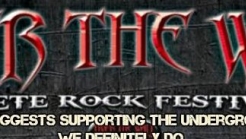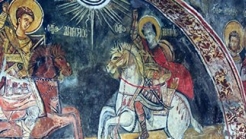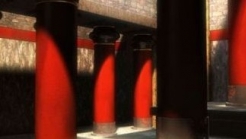

Greece
Heraklion is not just a city in the next visitor’s destination. Expresses something more, something deeper, a history of thousands of years. With this thought must learn the traveler to "read" the area beyond the mundane habits that require a visit to museums or at Knossos.
Heraklion is not just a city in the next visitor’s destination. Expresses something more, something deeper, a history of thousands of years. With this thought must learn the traveler to "read" the area beyond the mundane habits that require a visit to museums or at Knossos.
If your goal is to enjoy your holidays in one of the "exotic" beaches or explore the wonderful and full of beautiful countryside, we suggest you spend some time in the "Venice of the East" and try to know her better. The only certainty is that you will locate well hidden treasures and inside you will feel special grandeur.
Heraklion has a long history in time; Arab pirates, Venetian merchants, knights and dukes, Turkish pashas and janissaries, the elegant Minoan palace, the museum that houses the findings of one of the first civilizations of the Western world, many monuments scattered inside the city which are several times covered by modern buildings; city center surrounded by impressive Venetian monuments (Loggia, Basilica San Marco, Morosini’s Fountain, etc.) , which give you the feeling that you are walking into a second Venice; descend like the paved road that runs through the center and ends at the Venetian harbor, you will find yourself in front of the so-called "Rock of the Sea" , the notorious fortress of Koules. Finally, everywhere in the city are literally hidden several fountains, Venetian or Turkish, which helped the city's water supply. Also, many churches complete the picture of the architectural fabric, some of which date its origin to the Byzantine era.
Culture has its capital in Heraklion. Regularly organized events, art events, music festivals and other interesting actions that give an alternative character of the city.
Generally, Heraklion (Hercules’s Town) combines many contrasts, which are visible in every corner and alley. Where there is the traditional tavern beside a restaurant for fine tastes; close to major buildings sit small whitewashed houses that give off even the "smell" of a nostalgic era; expensive shops adjacent to cheap street markets; starkly modern homes are next to the elegant neoclassical buildings as if it was plucked from the Belle Époque.
Travel mentally and experientially in Heraklion, in a real live puzzle of history and cultures.


OVER THE WALL - CRETE ROCK FESTIVAL 4 Αυγ - 5 Αυγ · A story they say... ok! Once upon a time, a couple of people were at a festival doing all the ordinary things one does at a festival: drinking, chilling and listening to quality Rock and Metal (what do you


The Gonias Monastery situated to the west of Chania, in the vicinity of Kolimbari .


The palace of Knossos is The most famous architectural edifice of the Minoan civilization, which is the first flourished in Europe. Knossos is the most visited place for all who come to Crete and want to closely admire the splendor of the Minoans.
1039 Ε 6061 01515 00